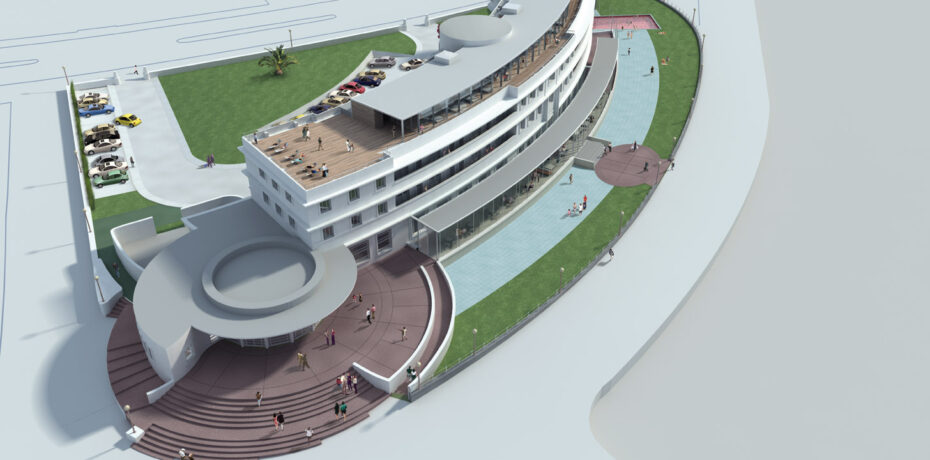Room with an outlook
Are hotels the new apartments? With developers announcing projects from the Wirral to Whitehaven and residential markets decidedly jittery, hotels are emerging as one of this year's hottest regional property trends.
When Urban Splash announced that it was planning to convert the Midland Hotel in Morecambe to a hotel, many assumed it was a vanity project. But now it looks like this will be just the start of a new hotels division for the iconic Manchester and Liverpool-based developer.
The company has appointed Belgian, Olivier Delaunoy, who worked on the launch of fashionable hotel NiteNite in Birmingham, to be operations director of the Midland for the first few months, before he steps up to run its new hotels subsidiary.
Urban Splash declined to comment ahead of the opening of the 44-bedroom £75m renovation project, which is expected to take place in May. But it is interesting to speculate on how this expansion into the hotel market squares with the news that pre-tax profits for the group dropped by more than half in 2007, from £8.9m in the previous year to £2.8m, a fall of 67%. Turnover rose from £57m to £62m and gross profits were up slightly at £18m.
Hotel occupancy rates in the North West are amongst the healthiest in the UK
We all know about "apartments over-supply". Industry views differ on what this actually means in our region. However, it doesn't take a genius to work out that in most towns and cities in the North West, supply of stock is currently outstripping demand and that not everything with planning permission is going to be built as originally intended.
Property developers have to make a living, so diversification makes sense. Brian J White, tax partner at Deloitte & Touche, and a hotel specialist, says: "There is no question that there is a lot of development in hotels in the North West right now. Although good apartment schemes will always sell, the market is fickle and very competitive. The yields on commercial property are falling to levels where they can't service borrowing. In the North West there is a shortage of hotels, so there is certainly an appetite, and this is an asset-backed class which can raise money through leaseback."
Anecdotally, at least, there is also evidence to suggest that whilst punters might not have £200,000 to splash on a city centre apartment, they are finding £200 to splurge on a weekend break in a hotel, and can thus experience all the joys of city living without any of the headaches.
Couple this with the promotion of the conference trade as a regeneration driver, as in Liverpool, with the new 10,600-seat Arena & Conference Centre on the waterfront, and there does appear to be a range of sound reasons why hotels could mean big business.
Hotel occupancy rates in the North West region, year-on-year to November 2007, are amongst the healthiest in the UK. Both Manchester and Liverpool enjoyed occupancy rates of more than 74% during this period, comparable to 68.7% in Leeds and 71% in Birmingham (source: HotelBenchmark/Deloitte).
In January, Preston became one of the latest cities to join Deloitte's HotelBenchmark Survey, the world's largest hotel performance database tracking the occupancy, average room rate and revenue per available room (revPAR) performance of more than 7,800 chain and independently operated hotels. Its average occupancy rate is 75%, the room rate is £102 and the revenue per available room is £76.
"A few years ago, apartments probably would have been our first thought [for a new project]," says Bill Addy, group business director of property developer Iliad, which is undertaking a £30m conversion of the Municipal Annexe on Dale Street in Liverpool into a 85-bedroom hotel, and is also planning a boutique hotel on Duke Street in the city. "We are still building apartments," he adds, "but from our point of view, moving into hotels is a natural progression. It's a natural extension of the brand."
Also in Liverpool, Merepark and Capital & Counties have submitted a detailed planning application for a £105m redevelopment of the Lewis's department store in Liverpool to include a hotel.
It is clear that canny developers are spotting a gap in the market between the Travelodge and the fusty, three-star number which has seen better days. The aim is to cater for a sophisticated guest who expects big-city standards both on business trips and at weekends.
In Whitehaven, Magnus Homes wants to put a new 90-bedroom hotel on the harbour-side, along with apartments, on the site of a pub and the former site of the Park nightclub, which Magnus Homes owns. It should be a smart move in an attractive seaside town which is receiving generous regeneration cash, is close to the Lake District, and benefits from proximity to Sellafield. "We aim to cater for business needs during the week," says Jonathan Lowe, managing director of Magnus Homes, "And Whitehaven Council is trying to work on encouraging tourism at the weekend."
Visit Britain, which represents the British Tourist Authority, believes that in tourist terms, the North West's time has come. Spokesman Stuart Barrow reports that since 2000, there has been a 400% increase in visitors to Liverpool. He identifies Liverpool's "attack brand", which means that it has a strong enough profile to attract and bring in both domestic and foreign leisure and business-orientated visitors.
Key to the success of hotels in the wider North West area is how Liverpool's "dispersal" neighbours will fare. "These are areas such as New Brighton and Hoylake, for the golf, where we encourage visitors to go when they come to Liverpool," explains Barrow.
He singles out Southport as being particularly successful at working hard to attract an economically-viable mix of seaside visitors; short-stay guests, the conference trade, and those who come to festivals and events such as the air-show. The latest addition to the accommodation offer will be Tony Owen's The Hotel, a £3m boutique hotel in the fashionable style of Owens' restaurant and bar. It is scheduled to open by 2009.
"Ultimately though, we know when a seaside town is successful because people come to visit, have a good time, and then they want to move there to live," says Barrow. "We've seen this happen in Brighton, for instance." If hotels really are the new apartments, they could be the answer to a developer's prayer in more ways than one.




